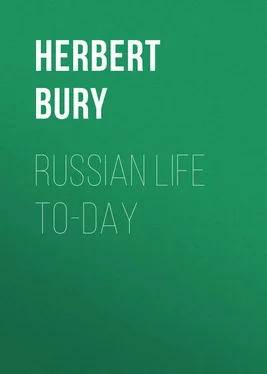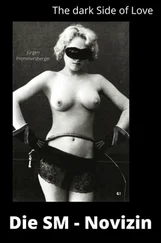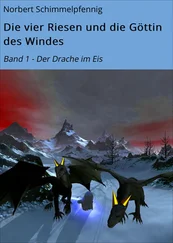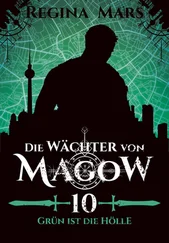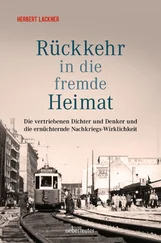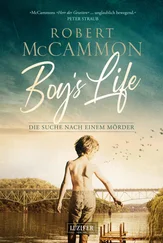Herbert Bury - Russian Life To-day
Здесь есть возможность читать онлайн «Herbert Bury - Russian Life To-day» — ознакомительный отрывок электронной книги совершенно бесплатно, а после прочтения отрывка купить полную версию. В некоторых случаях можно слушать аудио, скачать через торрент в формате fb2 и присутствует краткое содержание. ISBN: , Жанр: foreign_antique, foreign_prose, на английском языке. Описание произведения, (предисловие) а так же отзывы посетителей доступны на портале библиотеки ЛибКат.
- Название:Russian Life To-day
- Автор:
- Жанр:
- Год:неизвестен
- ISBN:http://www.gutenberg.org/ebooks/33303
- Рейтинг книги:5 / 5. Голосов: 1
-
Избранное:Добавить в избранное
- Отзывы:
-
Ваша оценка:
- 100
- 1
- 2
- 3
- 4
- 5
Russian Life To-day: краткое содержание, описание и аннотация
Предлагаем к чтению аннотацию, описание, краткое содержание или предисловие (зависит от того, что написал сам автор книги «Russian Life To-day»). Если вы не нашли необходимую информацию о книге — напишите в комментариях, мы постараемся отыскать её.
Russian Life To-day — читать онлайн ознакомительный отрывок
Ниже представлен текст книги, разбитый по страницам. Система сохранения места последней прочитанной страницы, позволяет с удобством читать онлайн бесплатно книгу «Russian Life To-day», без необходимости каждый раз заново искать на чём Вы остановились. Поставьте закладку, и сможете в любой момент перейти на страницу, на которой закончили чтение.
Интервал:
Закладка:
Note from p. 27, “M. Bourtzeff.” – There was a notice in the Times of February 4th last as follows: “A Reuter telegram from Petrograd of yesterday’s date states that M. Bourtzeff has been sentenced to deportation to Siberia.” I have never been able, however, to obtain any confirmation of this from Russian officials in this country, nor do the Russian Embassy know anything about it. I hope it will prove that a sentence was passed pro forma , and that the Emperor, as in Miss Malecska’s case, at once remitted the sentence, or that M. Bourtzeff was merely requested to live in Siberia for the present rather than in Russia, and I personally should think that no great hardship. I feel that we must await further particulars before being able to form correct impressions of this important case.
CHAPTER III
The Peasantry
It would be much more satisfactory to one’s self to try and write a book about the peasantry of Russia, rather than attempt to say all that one wants to say in a single chapter, for there could hardly be any more interesting and promising people in the world than the peasant folk of Russia. The future of the empire depends upon the development and improvement of its agricultural population, as they form three-fourths, according to the last census of three years ago, of its grand total of over 171,000,000 souls. Russia thus leads in the white races in the matter of population, and possesses that splendid asset, which Goldsmith feels to be vital to a nation’s advance and with which nothing else can compare when lost: —
“Princes and lords may flourish, or may fade;
A breath can make them as a breath has made;
But a bold peasantry, their country’s pride,
When once destroyed can never be supplied.”
It is upon coming to write even briefly and in an impressionist kind of way upon a class which forms the huge majority of Russia’s population that the vastness of her empire and the different conditions under which her people live begin to be in some small degree apparent. It is no wonder that thoroughly well-informed and experienced writers, who have lived long and travelled far in the country and who are evidently quite to be trusted, should yet write so differently.
One will write as if the Russian peasant was only a degree better in his intelligence than the animals which share his filthy hovel, and no less brutish in temperament and nature. Fearsome pictures are drawn in some books I have read of the almost impossible conditions and indescribable filth in which men, women, and children, fowls, pigs, horses, cattle, and dogs herd together in a stifling atmosphere and sickening stench, where to enter is out of the question unless one is to be covered with vermin and contract some illness. All this may be true to the writer’s own experiences, and he can only write and describe things as he has found them; but I too will do the same.
It is worth while to remember from the first that the lives of the peasant population of Russia must be as different in summer and winter as tropical heat is from arctic cold. In the winter all must crowd in together when the household is poor if life has to be preserved and defended against that appalling cold, when the one condition of the survival is warmth, or even heat. All outdoor occupation ceases, of course, with the one exception, it may be, of cutting, stacking, and carting wood. A peasant population, with a not very advanced civilization as yet, and little education – only twenty per cent. of the whole population can read and write – must, like the animal world, hibernate, come as it were to a standstill, rest physically and mentally, and prepare for the unremitting activities of the summer.
I remember once when staying in an inn at the top of an Alpine pass being impressed with the extraordinary energy and vivacity of the head waitress. She was simply untiring, always in good spirits, always at hand when wanted, unfailing in her attentions; however late a guest was up she was moving cheerfully about, however early one was down she was down before him helping to get things ready. When I was leaving I said to her, “I’ve been wondering when you get your rest?”
She smiled brightly, and said cheerfully, “In the winter, sir.”
That’s when the Russian peasant gets his rest also, and with the spring he begins his energetic life of farming and agriculture, of carting and labour. The long days are busy and all too short, the brief nights are hardly more than an interval. The whole land is full of movement, the air is full of song and music, the holidays marked by game and dance. Nothing could be more unlike the bitter cold and gloom of Russia’s long and terrible winter than the glow, brilliance, joy, and never-ceasing activities of her amazingly rich and life-giving summer. Her peasantry must present the same contrasts in homes and seeming temperaments, and two writers may therefore be widely asunder in their descriptions, and yet both write truthfully of the things they have seen and known at different times of the year.
To me the Russian peasant is, as to others who have known him at his best, an amiable, attractive, intelligent, thoroughly good-natured and altogether lovable creature. It is quite true that he can do, has done, and may again do some perfectly appalling things, but it has been when thoroughly worked up, as one of a crowd, and when every one else has lost his head. Terrible things which were not allowed to be known in Europe outside their frontiers, and now will probably never be known, were done during the revolution of seven years ago. But the Russian peasants are like children, as yet, and any one who knows and loves children knows perfectly well also what they are capable of, if they have any spirit in them, when thoroughly worked up, and when they too have for the time being lost their head and feel capable of almost anything that will hurt and pain and annoy. The peasants are in this, as in many other things, like children.
As soon as the statistics of the Russian peasantry come to be examined a startling fact comes to light. More than half their number – 582 out of every 1,000 – die before they are five years old. This means, as in the more inclement parts of our own country, that those who survive are a hardy race, strong and virile. The mortality is greatest amongst male children – over 600 out of every 1,000 – and those, therefore, who do live are strong enough for anything and of amazing vitality, as we have seen in the present war.
Not only are they vigorous and strong in physique, however, but there is nothing lacking in their intelligence, or Russia would not have the charm and fascination she possesses. Probably no country in the world, unless it be still agricultural France, can compare with Russia in the character of its peasant industries or their importance as part of the national revenue and resources. Probably the people will be stimulated to greater industry in this direction by the removal of the vodka temptation, and both cease to feel the desire for it and get something in its place. Just as a man I once knew who was led to give up drink and gambling at the same time, when wondering how he could possibly live without them, had to change his house and remove to another with a garden. There in gardening work he found his compensation, and at the same time added to the resources of his household. Thus may it be in Russia. 2 2 Just as I go to press Mr. Lloyd George has told the House of Commons that productivity is already increased 30 per cent. in Russia.
The list of the Russian peasant industries is a long and interesting one, but I won’t take up time in enumerating them, as they can be found in the Russian Year Book , or probably in most encyclopaedias. I may perhaps mention a few which have especially interested and attracted me, and will no doubt be brought before our own people in the Russian shops and exhibitions which are almost certain to be opened before long, and it must be remembered that I am speaking of peasant productions only.
Читать дальшеИнтервал:
Закладка:
Похожие книги на «Russian Life To-day»
Представляем Вашему вниманию похожие книги на «Russian Life To-day» списком для выбора. Мы отобрали схожую по названию и смыслу литературу в надежде предоставить читателям больше вариантов отыскать новые, интересные, ещё непрочитанные произведения.
Обсуждение, отзывы о книге «Russian Life To-day» и просто собственные мнения читателей. Оставьте ваши комментарии, напишите, что Вы думаете о произведении, его смысле или главных героях. Укажите что конкретно понравилось, а что нет, и почему Вы так считаете.
